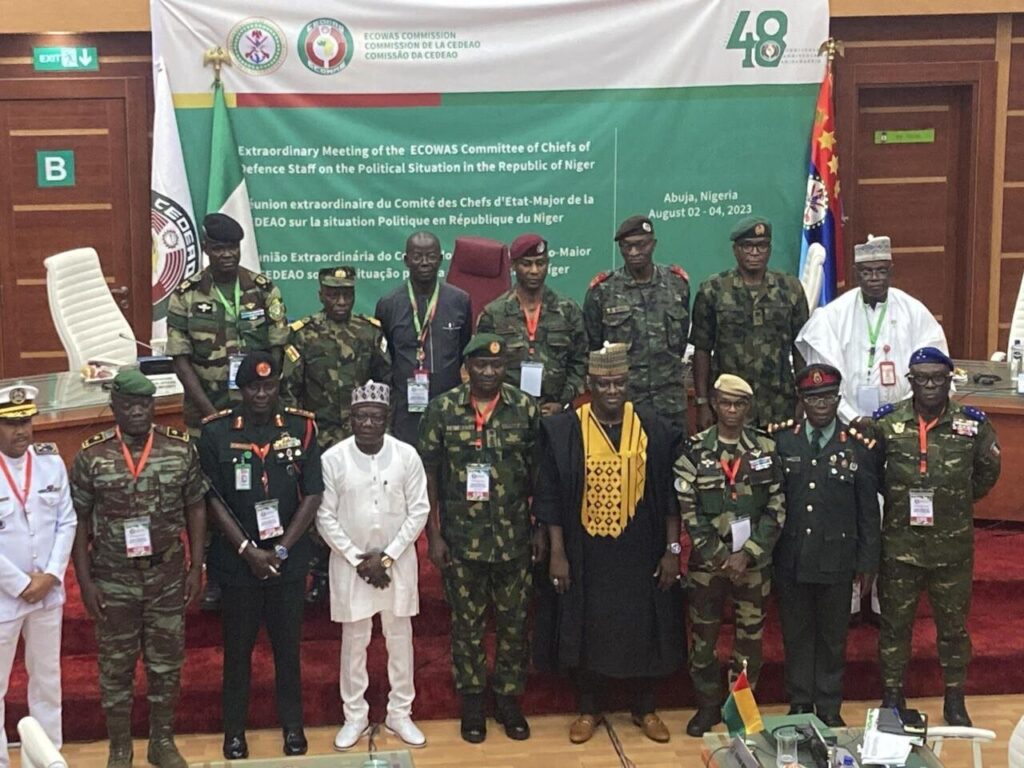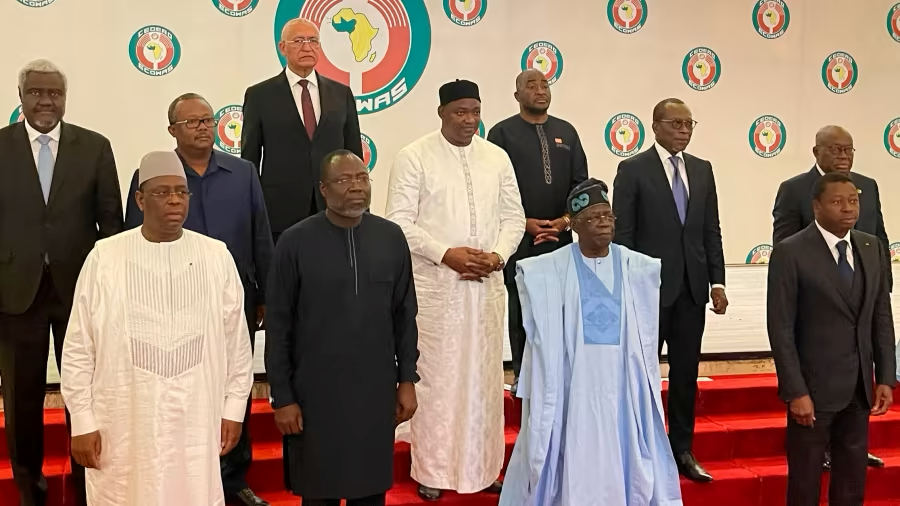The ECOWAS (Economic Community of West African States) Military Intervention Proposal for Niger has thrust the organization into a complex and multifaceted situation amid the ongoing political crisis in the country. This situation demands careful consideration and a deeper exploration of the various dimensions involved, both from regional and international perspectives.
ECOWAS has taken a resolute stance against the coup in Niger, primarily through the significant threat of military intervention. The organization’s approach seeks to exert pressure on the coup leaders responsible for the political upheaval and aims to restore democratic governance to Niger. However, this strategy comes with a host of potential consequences and complexities that merit in-depth analysis.
Nigeria, as a leading and influential member of ECOWAS, finds itself at the heart of this dilemma. The nation’s role in shaping the regional response to the crisis is pivotal. Nigeria’s interests, security concerns, and its prominent position within the organization all contribute to the complexity of the situation. Balancing its commitment to democratic principles with the potential risks and costs associated with military intervention is challenging for Nigeria.
ECOWAS’s stance on military intervention in Niger has not gone unnoticed on the international stage. The organization’s decisions have ignited debates and discussions worldwide. The potential for a military conflict in Niger has raised concerns about the stability of the entire West African region, leading to calls for a cautious and well-considered approach.
As the crisis persists, there is a growing recognition of the need for non-military solutions. The African Union (AU) and other regional actors emphasize the importance of diplomatic efforts to resolve the crisis peacefully. This diplomatic approach seeks to avoid further instability and conflict in the region while upholding democratic principles.
Adding another layer of complexity to the situation are the timelines set for the junta to restore civilian rule in Niger. These deadlines have placed additional pressure on ECOWAS to carefully assess its options and the feasibility of a military intervention within the given time frame.

On 26 July 2023, the Nigerien military, led by the Head of the Presidential Guard General Abdourahamane Tchiani, seized power from the democratically elected president, Mohamed Bazoum, and suspended the constitution. President Bazoum, along with his family, has been placed under house arrest and is reportedly living under austere conditions. Explanations for the coup vary, with some suggesting the military’s dissatisfaction with being sidelined by the president, while others cite concerns over poverty and security in Niger. There are even claims of Russia’s involvement in fomenting civil unrest in the country as part of its confrontation with the West.
On 30 July, ECOWAS imposed sanctions against the military junta and issued a one-week ultimatum to reinstate President Bazoum or face military intervention. Burkina Faso and Mali, both ruled by military juntas, warned ECOWAS that they would consider any military intervention in Niger a “declaration of war” against them.
With the ultimatum expiring, on 10 August, ECOWAS announced the establishment of a “standby force” and reiterated the warning to the military junta that “no option is off the table, including the use of force as a last resort.” This implies a threat of force, signalling ECOWAS’s intent to use military action if its demands are not met.
In a similar incident in 2016, ECOWAS threatened to use force in Gambia after then-President Yahya Jammeh refused to accept electoral defeat. This threat ultimately led to Senegal, an ECOWAS member, using force in Gambia, resulting in a transfer of power. However, the military junta in Niger has thus far appeared to disregard ECOWAS’s threats, having declared a new government, and announced intentions to prosecute the ousted president for “high treason.”
The threat or use of force is a cornerstone principle of international law, enshrined in the UN Charter. This post delves into the legality of ECOWAS’s threat of force in Niger under international law. It explores potential legal bases, including consent and the doctrine of pro-democratic intervention, to justify the use of force.

In conclusion, the crisis in Niger presents a complex and challenging dilemma for ECOWAS and the international community. The situation goes beyond the surface, forcing regional and international actors to navigate a delicate balance between upholding democratic values, preventing further destabilization in the region, and addressing the potential consequences of military action.
The decisions made by ECOWAS and its member states, particularly Nigeria, will significantly shape the future of Niger and the broader West African region. As the crisis continues to evolve, it is imperative to adopt a comprehensive and well-thought-out approach that incorporates both diplomatic efforts and the consideration of military action as a last resort.
The complexities and intricacies of this situation require careful analysis and a nuanced understanding of the implications for regional stability, democratic governance, and the well-being of the people of Niger and the West African region. Balancing these factors will be crucial in charting a path toward a stable and democratic resolution to the ongoing crisis. The collaborative efforts of regional and international actors will play a pivotal role in determining the ultimate outcome and ensuring that any action taken aligns with international legal norms and principles.
Sources
- https://punchng.com/nigerias-dilemma-as-ecowas-threatens-war-against-nigers-junta/
- https://www.premiumtimesng.com/news/top-news/614650-analysis-niger-coup-tinubu-ecowas-in-dilemma-on-deadline-day.html
- https://amaniafrica-et.org/the-most-pressing-dilemma-for-the-au-on-niger-is-to-help-find-a-path-for-a-non-military-resolution-of-the-crisis/
- https://lieber.westpoint.edu/niger-coup-ecowas-military-intervention-international-law-appraisal/
- https://theconversation.com/niger-ecowas-military-intervention-could-trigger-3-bad-outcomes-211549




